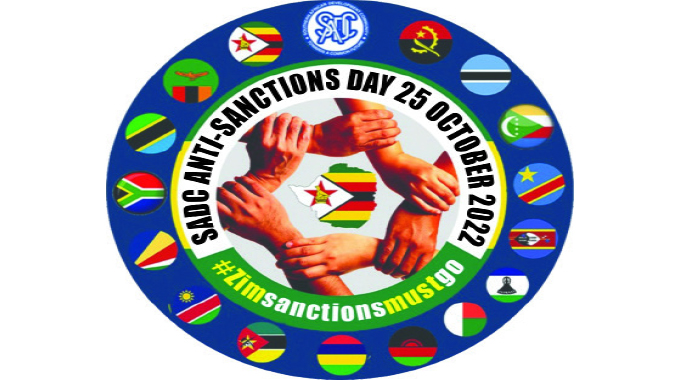‘Zim can do better without sanctions’

Oliver Kazunga-Senior Business Reporter
ZIMBABWE’S potential to sustainably grow the economy and attract investments into different sectors continues to be bogged down by the illegal western sanctions imposed on the country more than two decades ago.
Several Heads of State from Africa, such as South Africa, Kenya, Namibia, Botswana and Malawi as well as African Union chair and Senegal President Macky Sall seized the opportunity of the recently concluded United Nations General Assembly in New York to demand the lifting of the economic sanctions on Zimbabwe citing their detrimental impact to development.
The southern African country was slapped with the illegal economic embargo, which had the effect of isolating Zimbabwe from the international community, by Britain and her allies as punishment for embarking on the successful land reform programme initiated in 2000.
The Government undertook the land reform programme to address land ownership imbalances of the colonial era, which were perpetrated by the country’s minority white settler rulers.
Under the Second Republic, which came into being in November 2017 led by President Mnangagwa, the Government embarked on an international engagement and re-engagement offensive to reintegrate Zimbabwe back into the global family of nations and attract more investment.
After coming into power in 2017, the Second Republic declared that “Zimbabwe open for business” and sought to to lure foreign investments and capital from across the globe. However, despite the milestones the Government has so far made on improving relations with the West, Zimbabwe’s potential to attract fresh capital for local businesses and attract new investments was being undermined by the illegal economic sanctions.
Economist Professor Gift Mugano said: “Sanctions have affected us in several ways such as limiting the country from access to (external) finance.
“In the Zimbabwe Democracy and Economic Recovery Act (Zidera), there is a clause which states that any board of directors seconded to multilateral institutions like the International Monetary Fund (IMF), should not entertain any financing, particularly development finance, to Zimbabwe.
“When sanctions were imposed, we could also not draw down relief funding that Zimbabwe was supposed to receive following the challenges that came after implementing the Economic Structural Adjustment Programme (ESAP) in the1990s. We have also cleared the IMF debt, but because of Zidera, at the moment we can only receive humanitarian financial assistance from multilateral institutions and not development finance, which local companies require for working capital.”
Zidera was passed by the United States Congress in 2001.
As long as sanctions are in place, Prof Mugano said, the push for Zimbabwe as has been suggested in some domains, to be classified as a Heavily Indebted Poor Country in order to have its choking public debts forgiven will not help. HIPC is an initiative that was launched by the IMF and World Bank with the aim of ensuring that no poor country faces a debt burden it cannot manage.. Prof Mugano said there have been suggestions insinuating that Zimbabwe should push for classification as HIPC candidate.
He added that on the back of the hurtful western economic embargo, Zimbabwe would not access investment from foreign investors because of the country’s high risk profile.
A good number of Investors that would ordinarily consider, Professor Mugano said, were shunning Zimbabwe because of its high risk profile, preferring other destinations.
“One of the reasons why the Zisco and Essar Global deal failed is because of the OFAC (Office of Foreign Assets Control). Essar big as they are, they couldn’t transfer money into Zimbabwe to facilitate the transaction.
“If a giant like Essar failed to transfer money into the country, the message to other investors out there is that Zimbabwe is not an investable country, so potential investors tend to shy away,” he said.
OFAC is a financial intelligence and enforcement agency of the United States Treasury Department.
It administers and enforces economic and trade sanctions in support of United States national security and foreign policy objectives.
Another economist Mrs Chipo Warikandwa said: “As a result of the sanctions, local companies were failing to access offshore credit lines. There is what is called a premium of access financing and because of sanctions our own local companies are charged high interest rates as a result this discourages them from borrowing outside.”
At present, local industry is grappling with antiquated plant and equipment, which causes constant breakdowns whose net effect is uncompetitiveness of Zimbabwe products in the domestic and international markets.
The Confederation of Zimbabwe Industries (CZI), which represents the local manufacturing sector, has also hinted that one of the major constraints affecting production was obsolete equipment.
In 2018, CZI announced that the local manufacturing sector required US$1,7 billion for retooling.
The Zimbabwe National Chamber of Commerce (ZNCC) past president Mr Trust Chikohora said sanctions were an albatross on Zimbabwe as a nation and it was difficult to move forward under the illegal embargo.
“Yes, we are pushing ahead towards Vision 2030 under sanctions but we would have been far ahead without the sanctions.
“And it would be much easier to gallop forward if that albatross on our necks is removed because the issues that are coming into effect include the fact that we are not able to borrow from multilateral institutions such as the IMF and World Bank,” he said.
Such institutions, Mr Chikohora said, are used globally as benchmarks for offshore credit lines and thus if a country cannot access funding from them, it becomes difficult to secure the money from elsewhere.
“As a result of sanctions, some banks have been fined for processing payments to Zimbabwe and even some individuals have failed to get payments through even for school fees or even private payments. There have been cases where people’s payments have been blocked and so it makes it difficult to function in those circumstances,” he said.











Comments